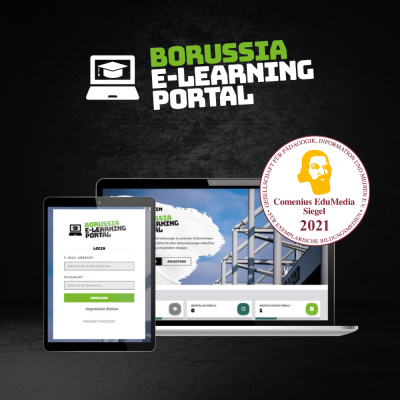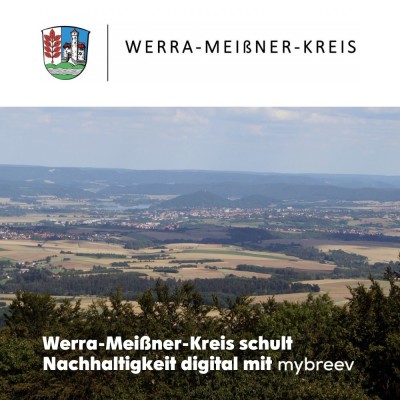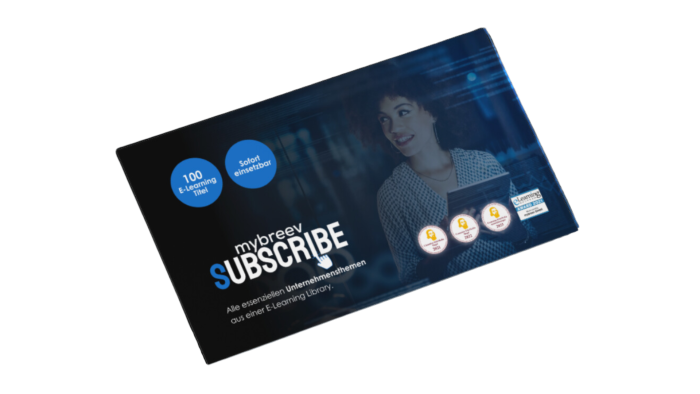To improve and analyse this website. You can find more information on this in our privacy policy or under settings. There you can also object to the use of cookies.

E-Learning Channel
Fairness First
With the e-learning course series "Fairness First", we bring employees, their well-being and their psychological safety to the fore. How can the organization be structured in such a way that all employees feel accepted and that cooperation in the workplace works? The role of individual employees is essential here. This is where employees learn:
- What constitutes diversity and inclusion and how these can be lived out.
- To recognize their own unconscious prejudices against colleagues
- Practical tips on how to work together fairly
Fairness First - E-Learning Kurs
Excerpts from the courses

Video-based and interactive
With realistic case studies and interactive quiz elements, we offer e-learning that captivates your employees and makes every topic tangible.

In several languages
We localize our courses in any language you require. Subtitles and texts as well as voice over - with us you will receive full training in every language.
Easy Access
Our courses can be easily integrated into your learning management system or delivered via our own online academy.
Our services

E-Learning Library
A digital course library for the modern enterprise: Get to know the Security Island E-Learning Library with over 100 premium e-learning courses from 16 subject areas.

Content Delivery Platform
The Content Delivery Platform offers a user-friendly solution to easily integrate valuable e-learning topics into your daily work routine and to promote the digital learning culture in your company.
Compliance, Diversity, Inclusion and Co.: Implementing Fairness First in Companies through E-Learning
With a clear focus on a fair working environment for all, organizations prioritize the well-being and psychological safety of each and every employee. To implement fairness in organizations on a lasting basis, the meaning must be implemented across all hierarchical levels and fair behaviors must be practiced again and again. This e-learning channel "Fairness First.
Compliance, diversity, cross-cultural management, inclusion, human rights and decent work, unconscious bias: these are essential, current buzzwords in the discussion about future-oriented management of companies and employees. How can the organization be structured in such a way that all employees feel accepted and that cooperation in the workplace works?
This is a question facing companies, the public sector, associations, foundations and all other organizations as well. After all, in addition to possible legal consequences, violations of compliance, diversity, inclusion and the like always mean negative consequences for an organization's reputation and its positioning as an employer and business partner. Violations of these applicable fairness rules can significantly damage business.
What does fairness mean in the corporate context?
Therefore, the motto for all organizations should be: Fairness First! With a clear focus on a fair working environment for all, they put the well-being and psychological safety of each and every employee first. But what does fairness mean in the corporate context? Fairness has been proven to strengthen employees' motivation, willingness to perform, and ability to cooperate and innovate. The consequences of unfairness, on the other hand, are pure service according to the rules, higher absenteeism, declines in efficiency, damage to image and dismissals.
For companies and other organizations, fairness therefore means looking at one's own business model and management structure from the perspective of the stakeholders and wanting the best for all reference groups. The purpose of the fair company is no longer solely to satisfy shareholders from a financial return perspective. It is about what is best for the community across all levels.
What issues does fairness cover?
For this reason, fairness can hardly be defined as a single term. Rather, fairness in a company - internationally we speak of corporate fairness - is made up of many individual topics that only together define the fair company and which have many points of contact with each other. The most important terms are:
Compliance: Compliance is the business and legal term for the adherence of companies to rules, i.e. the observance of laws, guidelines and voluntary codes. The entirety of a company's principles and measures for complying with certain rules and thus avoiding violations of the rules is called a "compliance management system".
Corporate governance: Corporate governance (principles of corporate management) forms the legal and factual regulatory framework for the management and supervision of companies for the benefit of all relevant stakeholders. In Germany, corporate governance principles are defined in the German Corporate Governance Code.
Cross-cultural management: Cross-cultural management is part of international management and is aimed at coordinating the "culture" segment. The aim of Cross-Cultural Management is to successfully deal with management problems in intercultural overlap situations. It teaches intercultural core competencies in management and work contexts.
Diversity: The concept of diversity encompasses acceptance of and respect for diversity. Diversity is the understanding that each person is unique, and to recognize individual differences in, for example, race, ethnicity, gender, sexual orientation, socioeconomic status, age, physical abilities, religious and political beliefs, and so on.
Inclusion: Inclusion means that every person can naturally participate in professional and social life in a self-determined and barrier-free manner. This principle is especially true for inclusion in the workplace. Inclusive organizations do not expect people with disabilities to adapt their lives to existing structures. They proactively create a framework for active participation.
Human rights: International law does not recognize companies when it comes to punishing human rights violations. But companies in particular can ensure that all human rights are respected at all times in their organizations and supply chains. It is therefore a matter of competence, how human rights compliant processes can be implemented in the corporate context.
Unconscious bias: Unconscious biases are social stereotypes about certain groups of people that individuals form outside their own consciousness to organize social worlds through categorization. Everyone has unconscious beliefs about various specific groups.
Business Ethics: Business ethics describes the reflection and application of ethical principles in the context of economic activity with a clear focus on the core values of humanity, solidarity and responsibility. Business ethics aims to answer the question of how moral norms and ideals can be implemented under the conditions of modern business.
What role do managers and every employee play?
In order to implement fairness in organizations on a lasting basis, the meaning must be implemented across all hierarchical levels and fair behavior must be practiced again and again. Managers have an essential role model and leadership function in this. They are responsible for anchoring an awareness of compliant behavior, acceptance of diversity, etc. among their employees and showing them that this compliant behavior is desired and needed. And the employees need a comprehensible understanding of the Fairness First concept in order to align themselves with it again and again and to really live it in practice.
What can e-learning do in this area?
In order to implement this variety of content in an adequate, cost-saving, legally compliant and user-friendly manner, organizations can no longer ignore digital learning options. Through the immediate, decentralized availability of specific knowledge in the company, employees are addressed by means of attractive storytelling. These offerings are available on e-learning platforms so that the content can be accessed at any time and from any location. E-learning can be easily tailored to individual users and can include high-definition videos, podcasts, gamification sections, interviews with experts, quizzes, and many other elements. The focus is on good and authentic preparation of the topics.
In this way, not only can complex knowledge be conveyed, but also every type of learner in a company can be addressed. In this way, acceptance for the topic of Fairness First is created. Only through consistent awareness will the topic become widespread and the interest of individuals be aroused. E-learnings also help as an introduction to the topic in greater depth and can encourage employees to deal with it in a targeted manner, thus advancing the positioning as a fair organization. The example set by managers in the use of e-learning offerings creates further motivation.
Fairness First" e-learning channel
Security Island's "Fairness First" e-learning channel is all about promoting fair and balanced interaction within the company. To achieve this, a company must focus on raising the awareness of its employees. The aim is to recognize unequal treatment and exclusion of colleagues, to take targeted action against this and also to question one's own behavior and thinking in this context - for greater acceptance and more harmonious cooperation. The following e-learning courses are included in the Fairness First channel: Inclusion, Compliance and Business Ethics, Diversity, Unconscious Bias and Human Rights.





























































